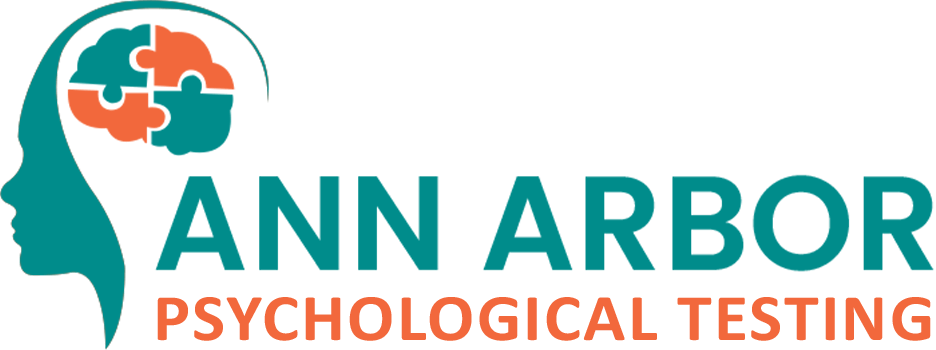ADHD and Memory: Understanding the Connection and the Role of ADHD Testing

Attention-Deficit/Hyperactivity Disorder (ADHD) and learning disorders are two common challenges that individuals may face, often co-occurring and complicating diagnosis and treatment. At Ann Arbor Psychological Testing, we understand the importance of distinguishing between these conditions, as each requires tailored intervention strategies. Comprehensive ADHD testing can provide valuable insights into an individual’s difficulties, leading to effective management.
What is ADHD?
ADHD is a neurodevelopmental disorder characterized by persistent patterns of inattention, hyperactivity, and impulsivity that interfere with functioning or development. According to the DSM-5-TR (Diagnostic and Statistical Manual of Mental Disorders, Fifth Edition, Text Revision), the criteria for diagnosing ADHD include the following:
- Inattention: Six (or more) of the following symptoms must have persisted for at least six months to a degree that is inconsistent with the developmental level of the individual and negatively impacts social and academic/occupational activities:
- Frequently fails to pay close attention to details or makes careless mistakes.
- Often has difficulty sustaining attention in tasks or play activities.
- Often does not seem to listen when spoken to directly.
- Frequently does not follow through on instructions and fails to finish schoolwork or chores.
- Often has difficulty organizing tasks and activities.
- Avoids, dislikes, or is reluctant to engage in tasks that require sustained mental effort.
- Often loses things necessary for tasks and activities.
- Is easily distracted by extraneous stimuli.
- Often forgetful in daily activities.
- Hyperactivity and Impulsivity: Six (or more) of the following symptoms must have persisted for at least six months to a degree that is disruptive and inappropriate for the developmental level of the individual:
- Often fidgets with or taps hands or feet or squirms in seat.
- Frequently leaves seat in situations where remaining seated is expected.
- Often runs about or climbs in situations where it is inappropriate.
- Often unable to play or engage in activities quietly.
- Is often “on the go” or acts as if “driven by a motor.”
- Often talks excessively.
- Often blurts out an answer before a question has been completed.
- Frequently has difficulty waiting for their turn.
- Often interrupts or intrudes on others.
To be diagnosed with ADHD, symptoms must be present in two or more settings (e.g., home, school, or work) and must interfere with or reduce the quality of social, academic, or occupational functioning.
What are Learning Disorders?
Learning disorders, also known as specific learning disorders, refer to a group of disorders that affect an individual’s ability to acquire and use academic skills. According to the DSM-5-TR, a specific learning disorder is characterized by difficulties in learning and using academic skills, indicated by the presence of one or more of the following symptoms that have persisted for at least six months:
- Impaired Reading: Difficulty in understanding the meaning of what is read, such as:
- Inaccurate or slow reading of single words.
- Difficulty with reading comprehension.
- Difficulty with fluency in reading.
- Impaired Written Expression: Difficulty with spelling, grammar, punctuation, or organization of written work, such as:
- Inaccurate or slow writing that can include omission or addition of letters and words.
- Difficulty organizing ideas coherently in writing.
- Impaired Mathematics: Difficulty in number sense, calculation, or mathematical reasoning, such as:
- Difficulty understanding number concepts or operations.
- Difficulty memorizing facts related to math.
- Difficulty applying math concepts in real-life situations.
Learning disorders can manifest in various forms, with dyslexia, dysgraphia, and dyscalculia being the most common types. These disorders can significantly impact an individual’s academic performance and overall self-esteem.
The Overlap Between ADHD and Learning Disorders
Research indicates a significant relationship between ADHD and learning disorders. According to Sibley et al. (2019), children with ADHD are at an increased risk for developing learning disabilities, which can complicate their educational experiences. The overlap in symptoms can often make it difficult to differentiate between ADHD and specific learning disorders.
Symptoms and Challenges
- Inattention: Individuals with ADHD may struggle with sustaining attention, affecting their performance in academic tasks. This inattention can be misinterpreted as a learning disorder when, in reality, it stems from ADHD.
- Academic Underachievement: Learning disorders often result in significant difficulties in specific subjects, such as reading, writing, or math. However, students with ADHD may also face academic challenges due to impulsivity and difficulty concentrating, leading to misunderstandings regarding their learning capabilities.
- Executive Functioning Deficits: Both ADHD and learning disorders can involve executive functioning challenges. Difficulties in planning, organization, and time management can hinder academic performance for both populations.
The Importance of ADHD Testing
Given the complexities surrounding ADHD and learning disorders, accurate diagnosis is essential. ADHD testing at Ann Arbor Psychological Testing offers a thorough evaluation that helps differentiate between these conditions. Here are several key benefits of pursuing ADHD testing:
- Comprehensive Assessment: Our ADHD evaluation includes a detailed clinical interview, standardized tests, and behavioral assessments. This comprehensive approach allows us to gather relevant information regarding attention, hyperactivity, and learning capabilities.
- Distinguishing ADHD from Learning Disorders: Understanding whether difficulties arise from ADHD, a learning disorder, or both can significantly impact treatment. Our testing process enables us to differentiate between these conditions and develop targeted recommendations.
- Identifying Co-occurring Conditions: Many individuals with ADHD experience learning disorders, and vice versa. Our assessment can identify co-occurring conditions, providing a more holistic view of the individual’s challenges and strengths.
- Personalized Recommendations: After the assessment, we provide a detailed report that outlines findings and tailored recommendations for interventions. This information is crucial for developing effective strategies to manage both ADHD and learning disorders, whether through educational support, therapy, or other interventions.
- Educational Accommodations: A clear diagnosis can lead to essential accommodations in school settings, such as specialized instruction or testing modifications. These accommodations can significantly enhance academic success and overall well-being.
Attention-Deficit/Hyperactivity Disorder (ADHD) is a neurodevelopmental disorder that affects many individuals, often leading to difficulties with attention, impulsivity, and hyperactivity. One area that is frequently impacted by ADHD is memory. At Ann Arbor Psychological Testing, we understand how memory issues can affect daily functioning, academic performance, and overall quality of life. Comprehensive ADHD testing can help clarify these challenges and lead to effective management strategies.
Understanding ADHD
ADHD is characterized by persistent patterns of inattention, hyperactivity, and impulsivity that interfere with daily functioning. According to the DSM-5-TR (Diagnostic and Statistical Manual of Mental Disorders, Fifth Edition, Text Revision), the criteria for diagnosing ADHD include:
- Inattention: Six (or more) symptoms that have persisted for at least six months, negatively impacting social and academic/occupational activities. Examples include:
- Failing to pay close attention to details.
- Difficulty sustaining attention.
- Often losing necessary items.
- Hyperactivity and Impulsivity: Six (or more) symptoms that have persisted for at least six months, being disruptive or inappropriate for the individual's developmental level. Examples include:
- Fidgeting or tapping hands.
- Talking excessively.
- Interrupting or intruding on others.
To be diagnosed with ADHD, symptoms must be present in multiple settings (e.g., home, school) and must significantly impair functioning.
Memory and ADHD
Memory plays a crucial role in everyday functioning, influencing learning, problem-solving, and social interactions. Research indicates that individuals with ADHD often experience specific memory deficits, particularly in working memory. According to a study by Martin et al. (1996), children with ADHD demonstrate significant impairments in their ability to hold and manipulate information in their minds. These memory challenges can manifest in various ways:
Types of Memory Affected by ADHD
- Working Memory: Working memory is essential for tasks that require holding and processing information temporarily. Individuals with ADHD may struggle to keep information active while completing tasks, leading to mistakes or omissions in their work.
- Short-Term Memory: Short-term memory involves the ability to retain information over brief periods. Individuals with ADHD may find it difficult to recall recently learned information, impacting their academic performance.
- Long-Term Memory: Although long-term memory is generally less affected, individuals with ADHD may have difficulties with encoding information properly, which can lead to challenges in retrieving information later.
The Importance of ADHD Testing
Given the complexities surrounding ADHD and its impact on memory, accurate diagnosis is essential. ADHD testing at Ann Arbor Psychological Testing offers a comprehensive evaluation that helps identify memory issues associated with ADHD. Here are several key benefits of pursuing ADHD testing:
- Comprehensive Assessment: Our ADHD evaluation includes a detailed clinical interview, standardized tests, and assessments focused on memory function. This thorough approach allows us to gather relevant information about attention, hyperactivity, and memory capabilities.
- Identifying Specific Memory Deficits: Understanding whether memory difficulties arise from ADHD or other conditions can significantly impact treatment. Our testing process enables us to differentiate between these issues and develop targeted recommendations.
- Personalized Recommendations: After the assessment, we provide a detailed report that outlines findings and tailored recommendations for interventions. This information is crucial for developing effective strategies to manage memory challenges, whether through therapeutic support, educational accommodations, or cognitive strategies.
- Enhancing Learning Strategies: By identifying specific memory deficits, we can recommend strategies that enhance learning and retention, such as mnemonic devices, visualization techniques, and organizational tools.
- Improving Daily Functioning: A clear diagnosis can lead to essential accommodations in various settings, enhancing academic success and overall quality of life.
ADHD & Memory
Understanding the relationship between ADHD and memory is crucial for accurate diagnosis and effective treatment. At Ann Arbor Psychological Testing, we are committed to providing comprehensive ADHD testing to help individuals gain clarity regarding their symptoms and develop personalized interventions. By accurately identifying ADHD and associated memory deficits, we can support individuals in achieving their full potential.
If you or someone you know is experiencing difficulties with attention, memory, or both, contact Ann Arbor Psychological Testing today to schedule an initial consultation. Our expert team is here to guide you through the assessment process and provide the support you need.
References
Martin, J. A., E. A. H. S., & S. W. (1996). Working memory in attention-deficit hyperactivity disorder. Journal of Abnormal Child Psychology, 24(2), 187-197. https://pubmed.ncbi.nlm.nih.gov/9000892/
